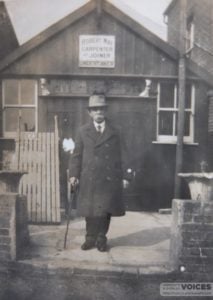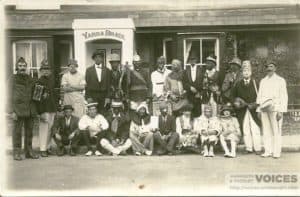Granny Hunt
My Granny Hunt did some home nursing when I was little.
Before I was born I‘m told she helped deliver babies. Her mum had given birth to thirteen healthy babies so I suppose it was a way of life for Gran.
She once told me that when she was young, if you had a baby that would not sleep, you got a square of butter muslin, sprinkled sugar in the middle then fold the butter muslin around it so it was rolled up, then you tied the ends tight with cotton. It should now be cracker shape. Then you stuck one end in the baby’s mouth and apparently they sucked the sugar out. What would health and safety think?
Sometimes the undertaker Mr May would send someone on a bike to ask her to come and lay somebody out who had just died. Granny Hunt would expect Aunt Alice and I to be very serious when she was about to go and do this. First she would put on a black silk dress then a black coat, black hat and a white starched apron. She had a little black case. We were not allowed to see inside and off she would go. When she came back we were expected to be silent for the rest of the day which wasn’t easy for me as a small kid.
Delia Whitehead nee Hunt b 1934




